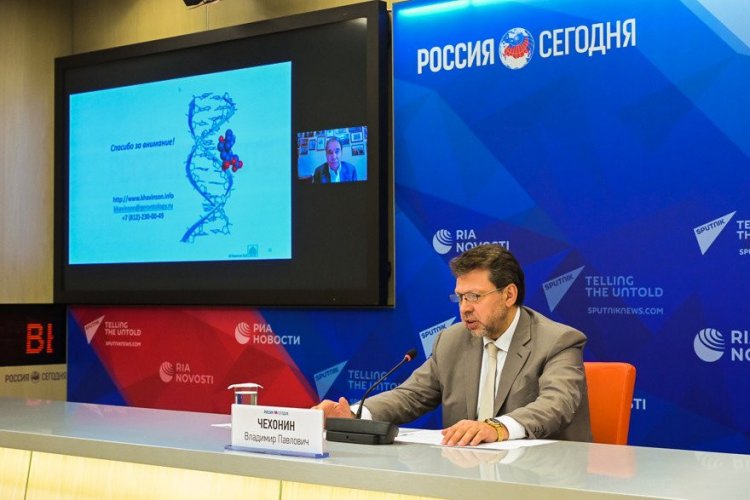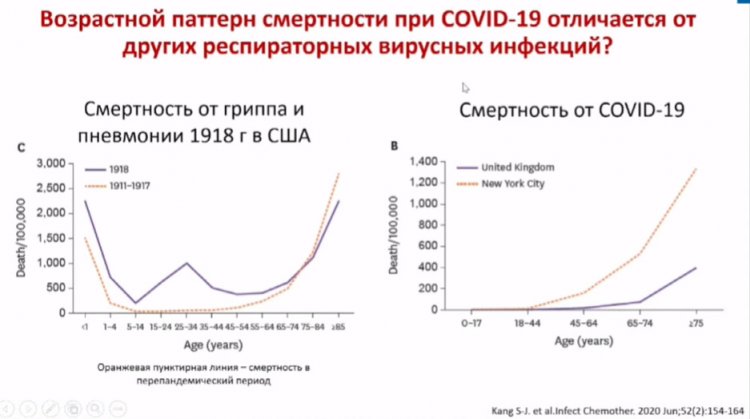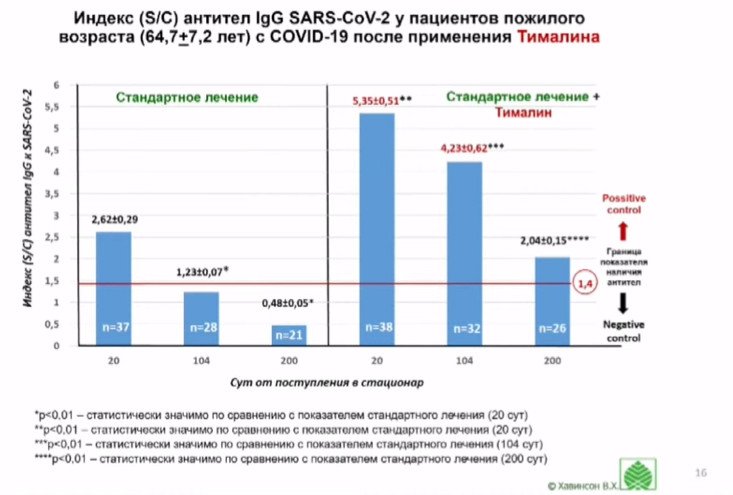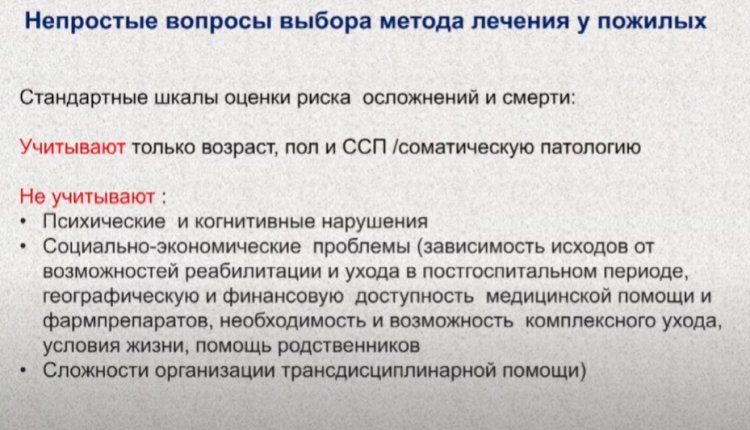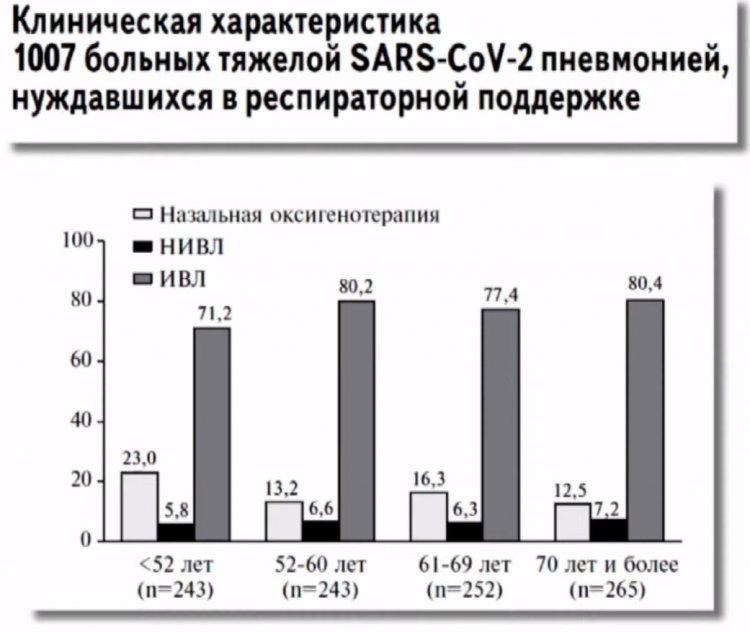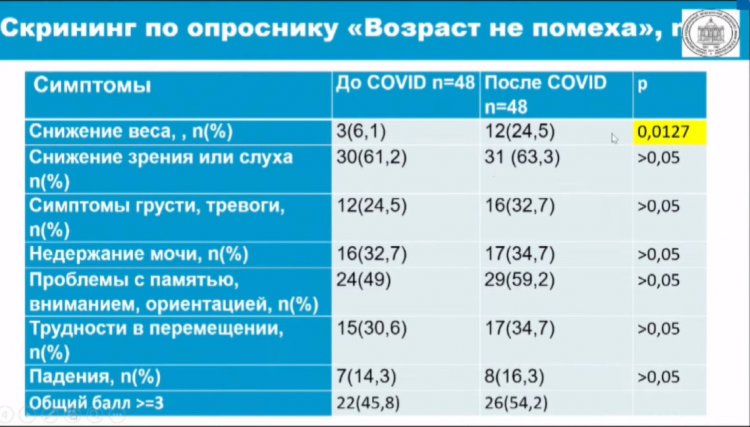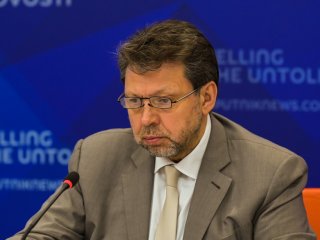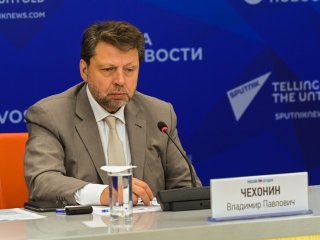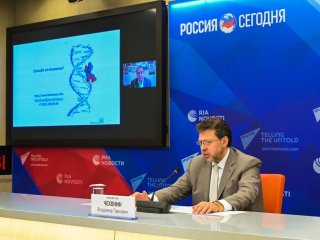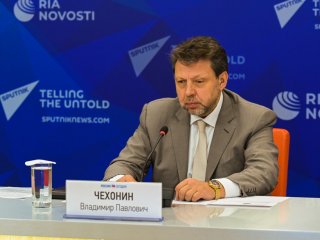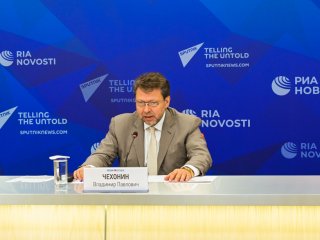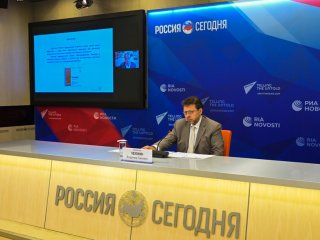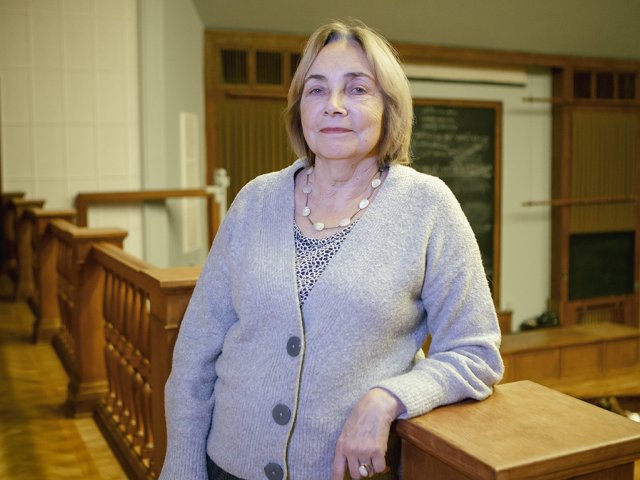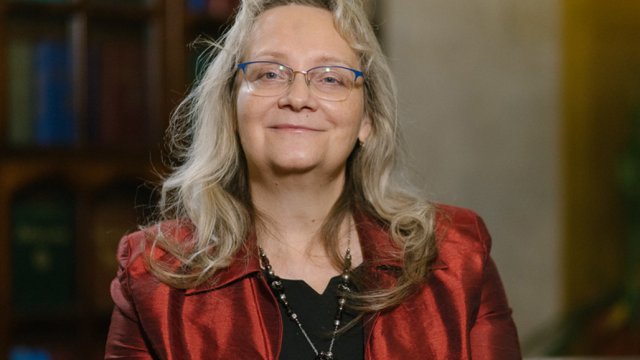On July 1, RAS Scientific Council for Life Sciences held an online meeting dedicated to Gerontological Aspects of Clinical-Pathogenetic Features of COVID-19.
The meeting was hosted by Vice President of RAS, Chairman of the Council, Academician Vladimir Pavlovich Chekhonin.
Attendants:
1. Olga Nikolayevna Tkachyova, Chief Geriatric Physician of the Ministry of Healthcare of the Russian Federation, Director of the Russian Gerontological Scientific and Clinical Center of the National Medical Research University named after Nikolay Pirogov. Ageing and COVID: What is Common Among Them?
2. Vladimir Khatskelevich Khavinson, RAS corresponding member, Director of the Research Center, St. Petersburg Institute of Bioregulation and Gerontology. Using Thymus to Correct Immune System and Hemostasis in Older COVID-19 Patients.
3. Sergey Anatolyevich Boytsov, RAS Academician, General Director of the National Medical Research Center of Cardiology of the Ministry of Healthcare of the Russian Federation, Vice President of the Russian Cardiological Society. Geriatric Aspects of Medical Care for Patients with Cardiovascular Diseases.
4. Sergey Nikolaevich Avdeyev, RAS corresponding member, Head of the Department of Pulmonology of the First Moscow State Medical University named after I. M. Sechenov. On Notable Aspects of the Course of the Novel Coronavirus Infection in the Elderly.
5. Georgy Petrovich Kostyuk, chief visiting expert psychiatrist of the Department of Healthcare of Moscow, chief doctor of the State Healthcare Institution, Psychiatric Clinical Hospital No.1 Named After N.A. Alekseyev. Gerontological Aspects of Medical Care in a Combination of Severe Mental and Infectious (COVID-19) Pathology and Immunoprophylaxis in Patients Profiled for Psychiatry.
6. Irina Dmitriyevna Strazhesko, Deputy Director for Translational Medicine of the Russian National Research Medical University named after N.I. Pirogov, Head of Laboratory for Translational Research in Gerontology. Long COVID and Ageing.
7. Yelena Vladimirovna Frolova, Professor of the Department of Family Medicine, Northwestern State Medical University named After I.I. Mechnikov, Chief Visiting Expert in Geriatrics of the Ministry of Healthcare of the Russian Federation for the Northwestern Federal District, Vice President of the Russian Association of Gerontologists and Geriatrists. Curation Needs of Elderly Patients with Coronavirus Infection in Outpatient Practice.
To join the webcast, visit the Scientific Russia portal or Russia Today website!
11:01. A welcome word to participants by Vladimir Chekhonin, RAS Academician and Vice President.
11:02. “Vaccination is a scientifically adequate response to the challenges posed by the pandemic,” Vladimir Chekhonin stresses for the second time.
11:03. Presentation by Olga Tkachyova, Chief Geriatric Physician of the Ministry of Healthcare of the Russian Federation, Director of the Russian Gerontological Scientific and Clinical Center of the National Medical Research University named after Nikolay Pirogov.
11:04. “The risk of developing a severe form of COVID-19 increases with age multifold.”
From the presentation by Olga Tkachyova.
11:07. “The immune system ages with the person. Older people have a decreased chance to respond correctly to a new infection.”
11:10. Gerontologists today are studying the impacts of COVID-19 progression in elderly patients. First of all, scientists are looking for specific drugs to support the immune system.
11:11. Clinical manifestations of COVID-19 in the elderly are atypical: fever, weakness, shortness of breath, headache, chills and others.
11:12. Issues demanding special attention include preventing infection in nursing homes, combating ageism, ensuring long-term care during the pandemic, vaccination in advanced age, and dealing with long-term social isolation.
11:14. “We see no special side effects in older people after vaccination. Evidently, older people better respond to vaccination. They are less likely to develop weakness or fever.”
11:16. Presentation by Vladimir Khavinson, RAS corresponding member, Director of the Research Center, St. Petersburg Institute of Bioregulation and Gerontology.
11:17. “There is a globalization of ageing around the world,” the scientist said.
11:18. Thymus peptides regulate gene expression.
11:20. The efficacy of Thymalinum was assessed by the expression of the human body’s immune response to the administration of inactivated influenza chromatographic vaccines, determining antibody titers before and after 30, 60, 90 and 120 days.
From a presentation by V.Kh. Khavinson
11:24. Scientists are now planning to study the combination of vaccination with administration of Thymalinum.
11:28. Presentation by Sergey Boytsov, RAS Academician, General Director of the National Medical Research Center of Cardiology of the Ministry of Healthcare of the Russian Federation, Vice President of the Russian Cardiological Society.
11:29. “In the context of cardiovascular disease, the effects of infection manifest themselves in the risk of complications, including fatal ones, together with changes in the cardiovascular system in COVID-19 survivors.”
11:30. Major types of cardiovascular diseases requiring diagnosis and treatment include rhythm and conduction disorders, cardiopathy, heart failure and others.
11:33.“There is a number of organizational problems: insufficient development of geriatric care in primary care clinics overwhelmed by high workload, lack of coordination between healthcare and social aid.”
From a presentation by S.A. Boytsov
11:38. “Being patient-centric is among main objectives of geriatrics,” Sergey Boytsov said.
11:40. “There are no contraindications for vaccination due to cardiovascular diseases in older persons.”
11:44. A presentation by Sergey Avdeyev, RAS corresponding member, Head of the Department of Pulmonology of the First Moscow State Medical University named after I. M. Sechenov.
11:45. “Mortality among patients in the 80+ age group is 30%,” Dr. Avdeyev commented the situation in Russia.
11:47. The older the age, the greater the risk of a confused mental state in COVID-19 patients.
From a presentation by S.N. Avdeyev.
11:52. “Elderly patients should receive all necessary aid in the treatment of complications from the coronavirus infection. Age is not a factor that prevents a patient from being admitted to an intensive care unit. The decision must be made based on the specific clinical background involving evaluation of geriatric status and identification of real therapeutic objectives.”
11:56. Presentation by Georgy Kostyuk, chief visiting expert psychiatrist of the Department of Healthcare of Moscow, chief doctor of the State Healthcare Institution, Psychiatric Clinical Hospital No. 1 Named After N.A. Alekseyev.
11:57. “Facing lockdown conditions, a complicated information environment, loss of their loved ones, the population has developed various anxiety disorders.”
11:59. “The increase in the consumption of psychotropic drugs is the main evidence of neuropsychiatric complications,” says Dr. Kostyuk.
12:04. “Based on observations, contracting the novel coronavirus can be seen as a strong exogenous organic pathogenetic factor in the development of mental disorders mainly of the organic cluster, including dementia, or decompensation of patient’s existing subclinical forms of mental disorders, particularly cognitive-spectrum disorders.”
12:12. Presentation, Long COVID and Ageing, by Irina Strazhesko, Deputy Director Irina Strazhesko, Deputy Director for Translational Medicine of the Russian National Research Medical University named after N.I. Pirogov, Head of Laboratory for Translational Research in Gerontology.
12:14. Long COVID is a manifestation of residual effects of coronavirus infection seen in up to 30% of COVID-19 survivors as they suffer long-term symptoms lasting up to 12 weeks or even longer in 2.3% of cases.
12:16. Senescent cells lose their ability to divide but retain metabolic activity. As they synthesize pro-inflammatory molecules and exhibit resistance to apoptosis, they create an inflammatory microenvironment.
12:19. Possible root causes of Long COVID include inflammatory response caused by residual virus exposure, monocyte activation syndrome, persistent virus replication, respiratory syndromes as a consequence of unresolved pneumonia against a background of immune imbalance in the lungs.
12:23. The Long COVID syndrome is the result of virus persistence and immunopathological response against the background of increased number of senescent pro-inflammatory monocytes, aggravated by ineffective T-cell response.
12:26. Presentation by Yelena Frolova, Professor of the Department of Family Medicine, Northwestern State Medical University named After I.I. Mechnikov, Chief Visiting Expert in Geriatrics of the Ministry of Healthcare of the Russian Federation for the Northwestern Federal District, Vice President of the Russian Association of Gerontologists and Geriatrists.
12:28. The supposed positive effect of reducing the risk of falls in COVID-19 patients taking vitamin D is related to its function as a modulator of musculoskeletal and immune systems but further research is needed.
From Ye.V. Frolova’s presentation.
12:36. COVID-19 survivors face increased frequency of neurological symptoms: dizziness, unstable gait, sleep disorders, depression and anxiety symptoms.
12:38. The webcast has ended. Thank you for joining us!
Live broadcast with the support of the Ministry of Science and Higher Education of the Russian Federation and the Russian Academy of Sciences.
Photos provided by Russia Today’s International Multimedia Press Center.
Mentions in media:
Scientific Russia. RAS corresponding member V.Kh. Khavinson on the efficacy of the immunomodulator Thymalinum
Scientific Russia. COVID: a Mirror of Mortality.
Scientific Russia. S. Boytsov: The Pandemic Affects all Patients with Cardiovascular Diseases.
Scientific Russia. RAS corresponding member S. N. Avdeyev: Progression of COVID-19 in the Elderly.
Scientific Russia. Yelena Frolova: Vaccination will Help Avoid Comorbidities.
Scientific Russia. Irina Strazhesko: Long COVID and Ageing.
Scientific Russia. COVID-19: a Strong Factor in the Development of Mental Disorders.
RIA Novosti. A Doctor Explains Why Older People Find It Harder to Fight COVID-19.
RIA Novosti. In Russia, Almost All COVID-19 Patients on Ventilators are Diagnosed with the Delta Variant.
TASS. An Expert Says that Coronavirus Cannot Spread through the Common A/C System.
TASS. Expert Believes Almost All Patients on Ventilators to Have Contracted the Delta Variant.
Moskovskiy Komsomolets. In Russia, Most Patients on Ventilators are Diagnosed with the Delta Strain.
Public News Service. The Chief Geriatrist of the Ministry of Healthcare Explains Causes for More Severe COVID-19 Course in the Elderly.
Rossiyskaya Gazeta. Healthcare Ministry Officials Comment on the Challenging Situation with the Delta Variant.
Krasnaya Vesna Information Agency. 90% Hospitalized Cases have the Delta Variant – Ministry of Healthcare.
Komsomolskaya Pravda. Healthcare Ministry Officials Believe Almost All Patients on Ventilators to Have Contracted the Delta Variant.
Izvestiya. A Doctor Rules Out the Risk of COVID-19 Spreading Via the Air Conditioning System.
Vechernyaya Moskva. Healthcare Ministry Expert: Almost All Coronavirus Patients on Ventilators Test Positive for the Delta Variant.
Russia Today. Healthcare Ministry Officials Comment on the Challenging Situation with the Delta Variant.
Moskva24. Most Russians on Ventilators are Infected with the Delta Variant – a Healthcare Ministry Expert.
